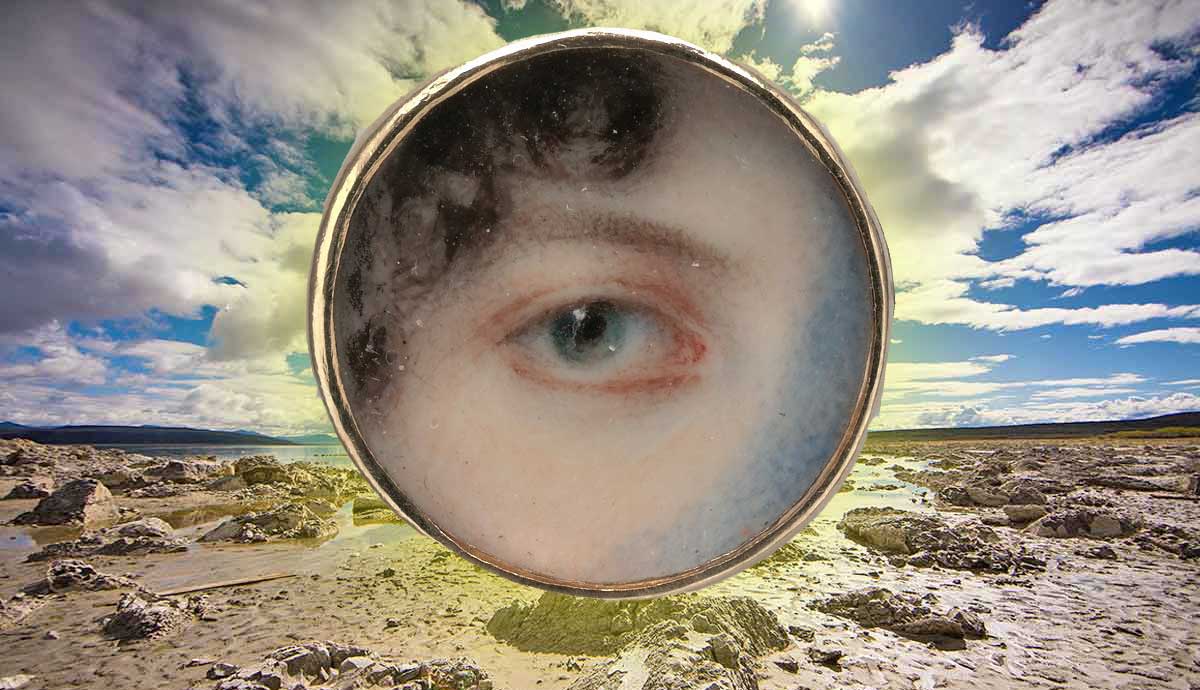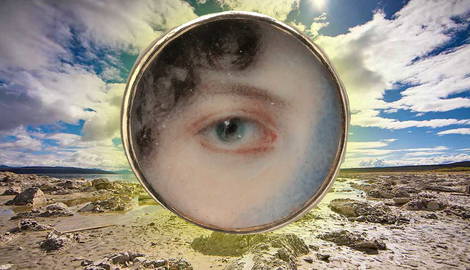
Imagine you’re on a beach. You notice the blue water shimmering in sunlight as waves lap upon your feet, bringing with them the scent of salt water. You’re reminded of the week’s perfect weather, predicted in multiple weather reports, all the while trying to forget this is the seventh day of a weeklong vacation, making it your last. In this unremarkable scene we find a remarkable fact: perception, memory, testimony, introspection and reason are all working together to give you knowledge. Let’s see how.
Perception Is an Originary Source of Knowledge

Some of these mundane bits of knowledge—that the water is blue, the sun shines, and the waves lap upon your feet—have their source in perception, the ability to see, hear, taste, smell and touch objects in our environment. Perception is a source of knowledge because it makes perceptual facts like these available to us. It is through perception that we know certain things. Perception is plausibly also an originary source of knowledge because it operates independently of other sources. Knowing the ocean is blue because you see it is blue does not depend on someone’s testimony to this effect. To know it, it is enough that you perceive it in the right way.
What is ‘the right way’? Imagine the ocean appears blue only because you forgot to remove your color-coding contact lenses. In this case, you do not know on the basis of perception that the water is blue because you are deceived by appearances. The lesson is that perception, like any source of knowledge, must be causally connected with its objects. The ocean must appear blue because it is blue, and because its blueness causes you to see that it’s blue.

This causal condition is complicated by illusion and hallucination—that we sometimes misperceive things, or have visual experiences of non-existent things. So, the epistemology of perception must work out a plausible theory of the causality of perception that accounts for these complications.
Memory Is a Knowledge Source Linked to Perception

From your perch on the beach, you also have knowledge of the past week’s weather reports. Memorial knowledge—knowledge we have through our memories—is extremely common. How does it work? Like perception, memory is a source of knowledge because it makes memorial facts—facts about the past—available to us. Unlike perception, however, memory is not an originary knowledge source. This is because memorial knowledge must be furnished by other sources—you remember the week’s weather reports because earlier you saw or heard them, for example.
Memory plays a crucial role in much of our knowledge. Your perception of your house is informed by your memory that it’s your house; your ability to evaluate an argument’s conclusion depends on your ability to retain in memory its premises. So, memory is not restricted to the ability to know things about the past. It’s also a ‘glue’ that allows you to retain knowledge throughout a single cognitive process.

Like perception, memory is fallible. So a good epistemology of memory must distinguish veridical and non-veridical memories. No doubt a causal condition plays some role: a veridical memory should be one caused by what it is a memory of. But this is not enough. Additional questions include whether remembering always involves mental imagery; whether degraded memories can still be sources of justification; and how closely memorial beliefs should be linked to perceptual beliefs for their justificatory power.
Testimony Is Among Our Most Important Knowledge Sources

Let’s assume you accurately perceive the day’s beautiful weather and your memory of the promising weather reports is accurate: you recall these reports just as you originally saw them. Something can still go wrong: your memorial knowledge would be defective if the meteorologist issuing the report is unreliable.
We gain a vast amount of our knowledge from others’ testimony. A gas station attendant gives us directions to the hotel; a professor tells us about the molecular structure of water; a sibling says when she will be arriving for her visit. But acquiring knowledge through testimony can be unreliable because the source of the testimony may be untrustworthy. We planned our vacation around the promising weather report, only to find our plans scuppered because the report was wrong.
This shows that, unlike perception and memory, testimony is a source of inferential knowledge. It is not enough to perceive or to remember the meteorologist’s report. We also must evaluate his trustworthiness and then make the inference, tacitly or otherwise, that his report is reliable.
If all goes to plan, we can include in our inventory of knowledge the many things we learn through testimony, even though this is not an originary source, depending as it does on perception and memory.
Introspection Is One of the Most Secure Knowledge Sources

Your knowledge on the beach is not limited to what you can perceive or remember. It also extends to a unique knowledge of your own mental states. This is knowledge acquired through introspection. As the waves lap upon your feet, you are aware of sensations of cold water. The next moment your awareness shifts to a feeling of disappointment, since you hoped the ocean would be warmer this time of the year. Next you admonish yourself to enjoy the holiday.
This introspective knowledge is uniquely your own. Your fellow traveler cannot have it, not even if you share it with her (this would be testimonial knowledge, after all), because introspective knowledge is knowledge you have strictly of your own mental and bodily states: what you’re thinking and feeling at any moment.

There is little doubt introspective knowledge is quite secure, certainly more than testimonial and memorial knowledge. For it seems odd to say you can be mistaken about what you are thinking or feeling at any moment. But this is not impossible; self-deception is a well-established psychological phenomenon. Like epistemologies of other sources of knowledge, therefore, an epistemology of introspection must include an account of the difference between veridical and non-veridical introspection.
A causal condition is again very plausible here—veridical introspection is plausibly causally connected with the fact that makes the introspective belief true. But a complete epistemology of introspection must go further and understand the unique relationship we bear to our own mental states despite the fact that our knowledge of these states is fallible.
Reason Is the Most Mysterious Knowledge Source

So far the sources of knowledge we’ve discussed are empirical, what philosophers call ‘a posteriori’. The statement ‘the water is blue’ is true if and only if the water is in fact blue, and you can know this only by looking. But your knowledge on the beach is not restricted to what empirical sources yield. You also deduced that this is the final day of your vacation, and this knowledge involves thought alone.
How does this work?
You already knew two pieces of information:
- Your vacation is seven days
- Today is the seventh day
You then combined (1) and (2) to infer (3):
3. Therefore, today is the last day of vacation
(3) is a piece of knowledge you have through reason alone, which philosophers call ‘a priori’ knowledge. This is knowledge you can have without appealing to experience. A priori knowledge is complicated. One question is how we can confirm the truth of certain claims on reason alone.

Is it because we are just combining the meanings of terms, like knowing ‘bachelor’ means ‘unmarried male’? If so, then a priori knowledge might not be genuinely informative, combining as it does definitions. On the other hand, if it is informative, like the Pythagorean Theorem seems to be, then does reason involve a capacity to think ‘abstract facts’ about the world, facts we cannot strictly perceive? Questions like these are what make reason such a mysterious knowledge source.
Every knowledge source requires careful analysis in epistemology, however. This is because it can be easy to confuse the sources through the proper function of which we acquire knowledge with the evidence on the basis of which we are entitled to this knowledge. Sources give us this evidence—they make it evidence available to us—but they (or, more precisely, their proper functioning) are likely not themselves evidence. This being said, not even this distinction between sources and evidence finds unanimous agreement among epistemologists.










